Kuala Lumpur doesn't exactly feel like a ghost town. Cars and motorcycles still intermittently pass by, though far fewer than you'd see even during the two biggest festivals – Chinese New Year and Eid – when most city dwellers usually head back to their hometowns.
But this afternoon, the silence was deeper. The call to Friday prayers did not emanate from the mosques, following the government's decree on Monday that all places of worship close till the end of March. Last Friday, prayers still went ahead as normal, despite signs of a growing outbreak of COVID-19 among people who attended a mass gathering of Muslim missionaries at a Kuala Lumpur mosque.

All places of worship have been shut in Malaysia. /CGTN
All places of worship have been shut in Malaysia. /CGTN
By Monday, following an alarming spike in cases, most linked to the mosque gathering, the new Prime Minister Muhyiddin Yassin announced a partial lockdown, officially a movement control order. All public gatherings were to be halted; all schools, colleges and universities closed; all non-essential government and private businesses and services were to close; all Malaysians were barred from leaving the country and all foreigners barred from entering. The order would take effect at midnight the following day.
But the message to stay put and keep social distance came out muffled, at best.

Around two-thirds of infections in Malaysia are linked to an event at this mosque. /CGTN
Around two-thirds of infections in Malaysia are linked to an event at this mosque. /CGTN
Many Malaysians reacted to the government's announcement as if it were the start of a major festival, a signal to "balik kampung" – literally "return home to the village." As the deadline approached on Tuesday afternoon, out of the blue, police told the public they needed a valid reason to travel between states and needed to bring a form to their local police station to get it endorsed first.
Cue huge crowds of people swarming the police stations and lining up together for hours, defeating the purpose of the partial lockdown. Traffic increased rather than decreased on highways leading in and out of the major cities.
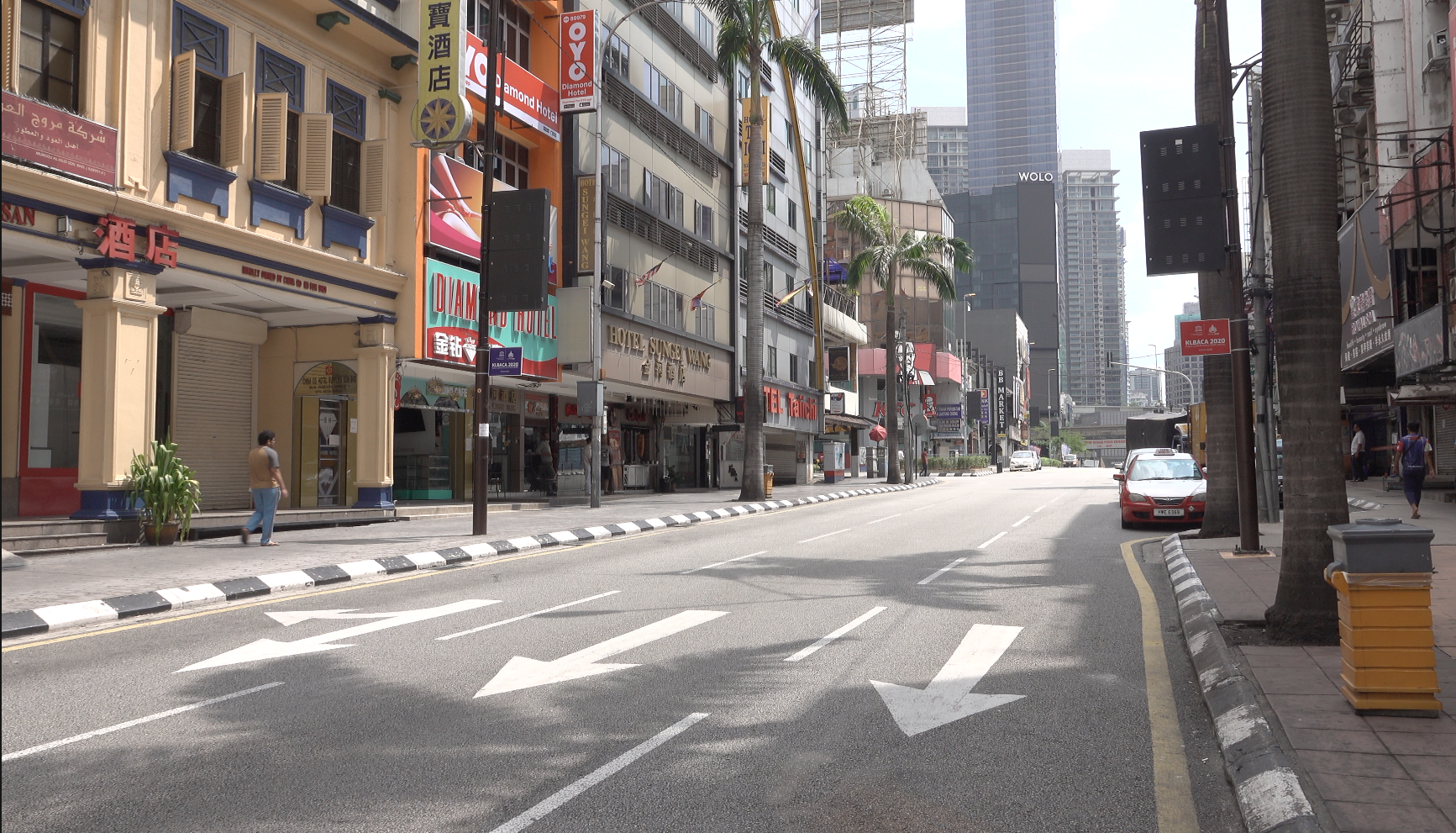
The central business district is near deserted. /CGTN
The central business district is near deserted. /CGTN
On the first day of the shutdown, there were more signs people weren't grasping the severity of the situation. Restaurants were allowed to remain open but only for takeaway or delivery. But at some places where they didn't put away tables and chairs, people still sat down to eat. Municipal authorities have had to roam the streets getting informal roadside food stalls to close down. People thronged popular parks to go for a morning hike or jog.
On the first evening of the partial lockdown, the prime minister took to the airwaves again, this time making an informal and personal-sounding appeal to Malaysians' better judgement.
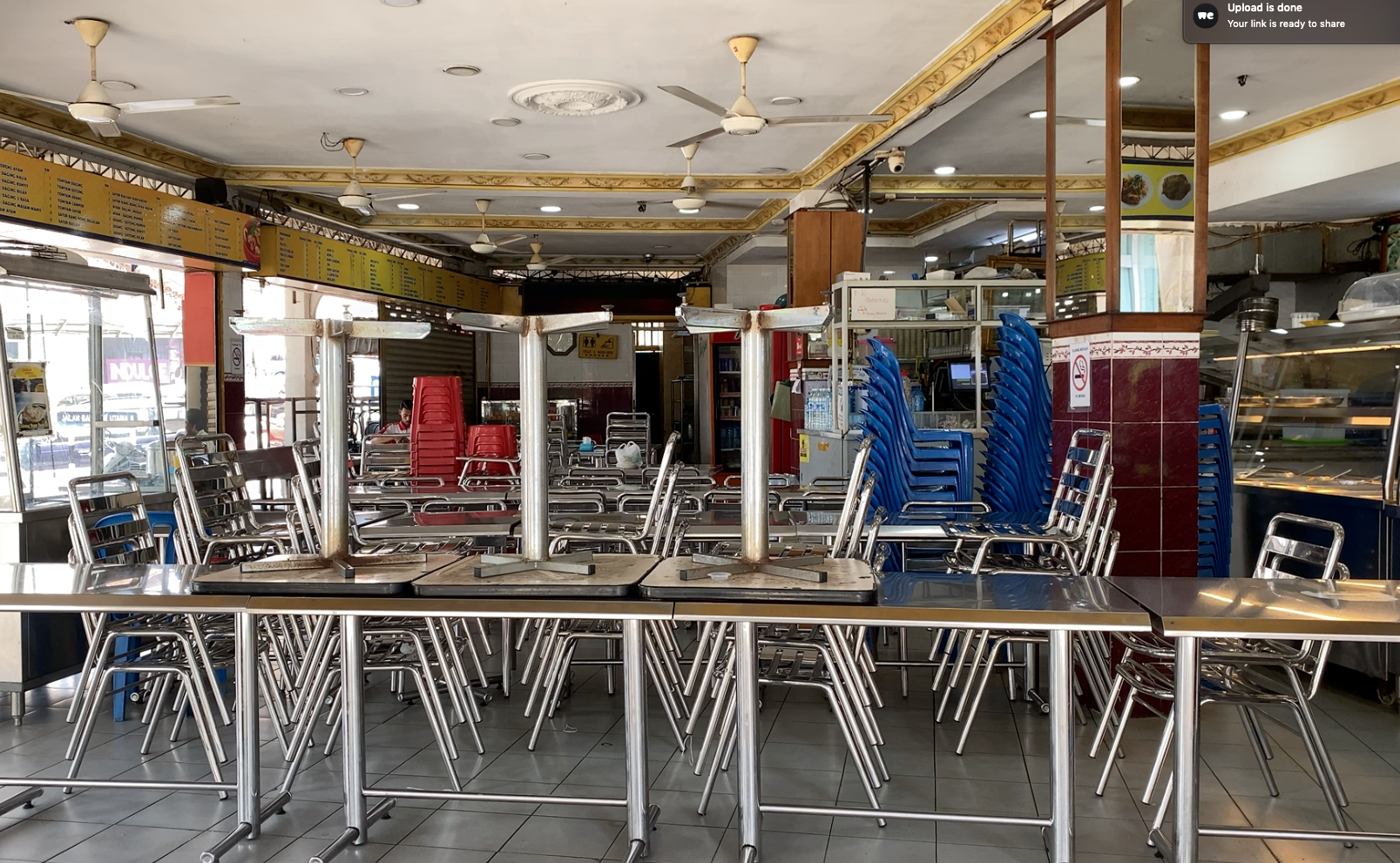
Restaurants can only provide takeaway and delivery service. /CGTN
Restaurants can only provide takeaway and delivery service. /CGTN
"Just stay at home," he repeated several times. "If you are in Kuala Lumpur, stay in Kuala Lumpur. If you are in Johor Bahru, stay in Johor Bahru," he said in Malay. Then reiterating in English: "Stay at home and protect yourself and your family."
It was a powerful message delivered effectively. But many people felt it could and should have been made at least a day earlier, if not at the time the sweeping measures were first announced. By now, tens of thousands of Malaysians had already made a mad dash back to their hometowns, where there will be many vulnerable, elderly people, less access to testing and to any necessary treatment.
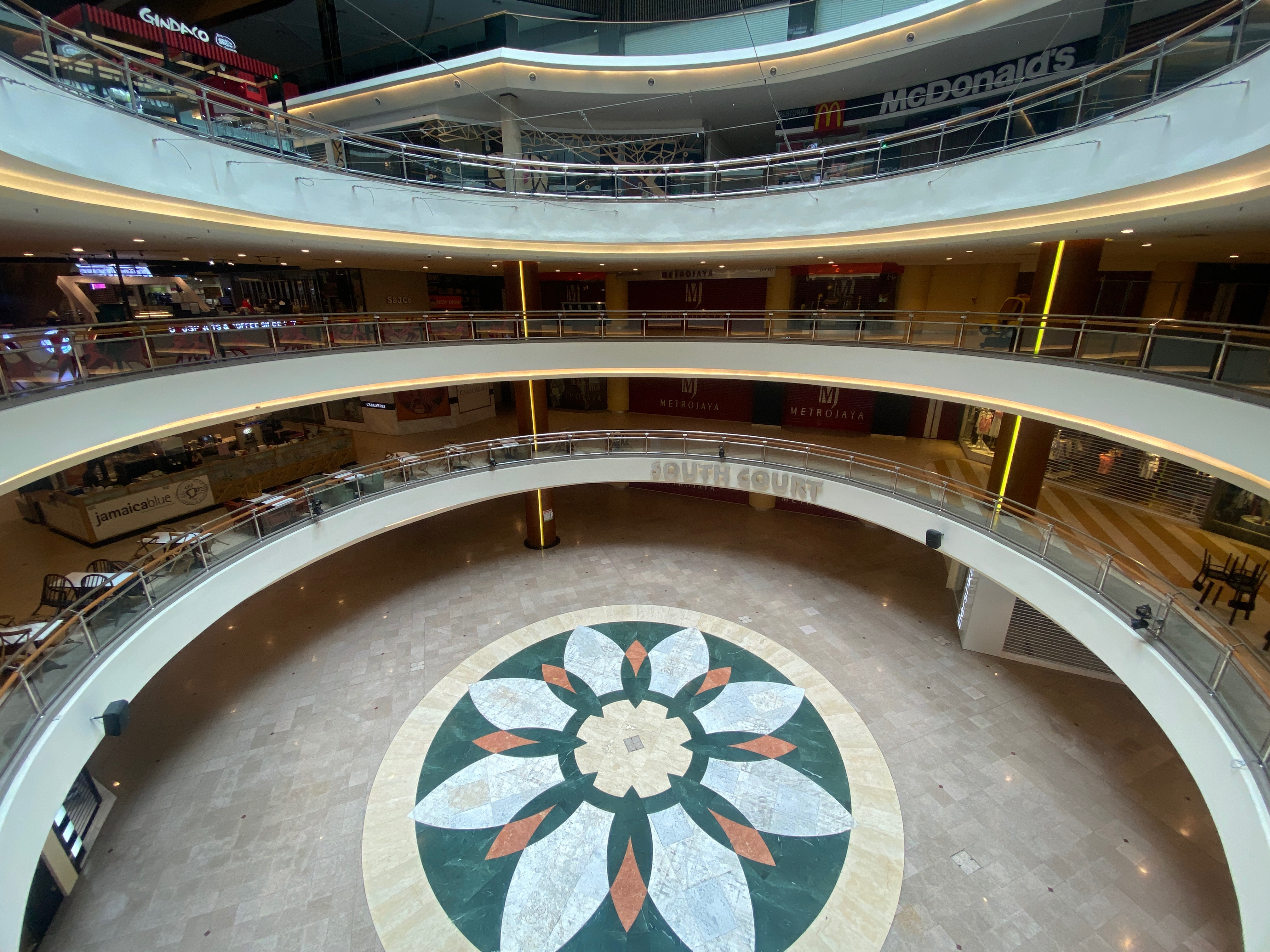
One of the city's busiest malls. Only essential services remain open. /CGTN
One of the city's busiest malls. Only essential services remain open. /CGTN
But Malaysians do now seem to be taking the warnings more seriously. Police have been mounting road blocks and patrolling the central shopping area with loudspeakers. They aren't arresting people. They are chiding, warning, advising and coaxing people to curtail non-essential activities.
A side effect of the movement control order is that people in low-paying jobs that Malaysians would usually look down on or outright shun and leave to migrant foreign workers to do, have become frontline essential service providers: supermarket shelf stockers and cashiers, restaurant workers, cleaners, food delivery riders. They are enduring the daily risk to ensure people in Malaysia can still buy their groceries and favorite meals.
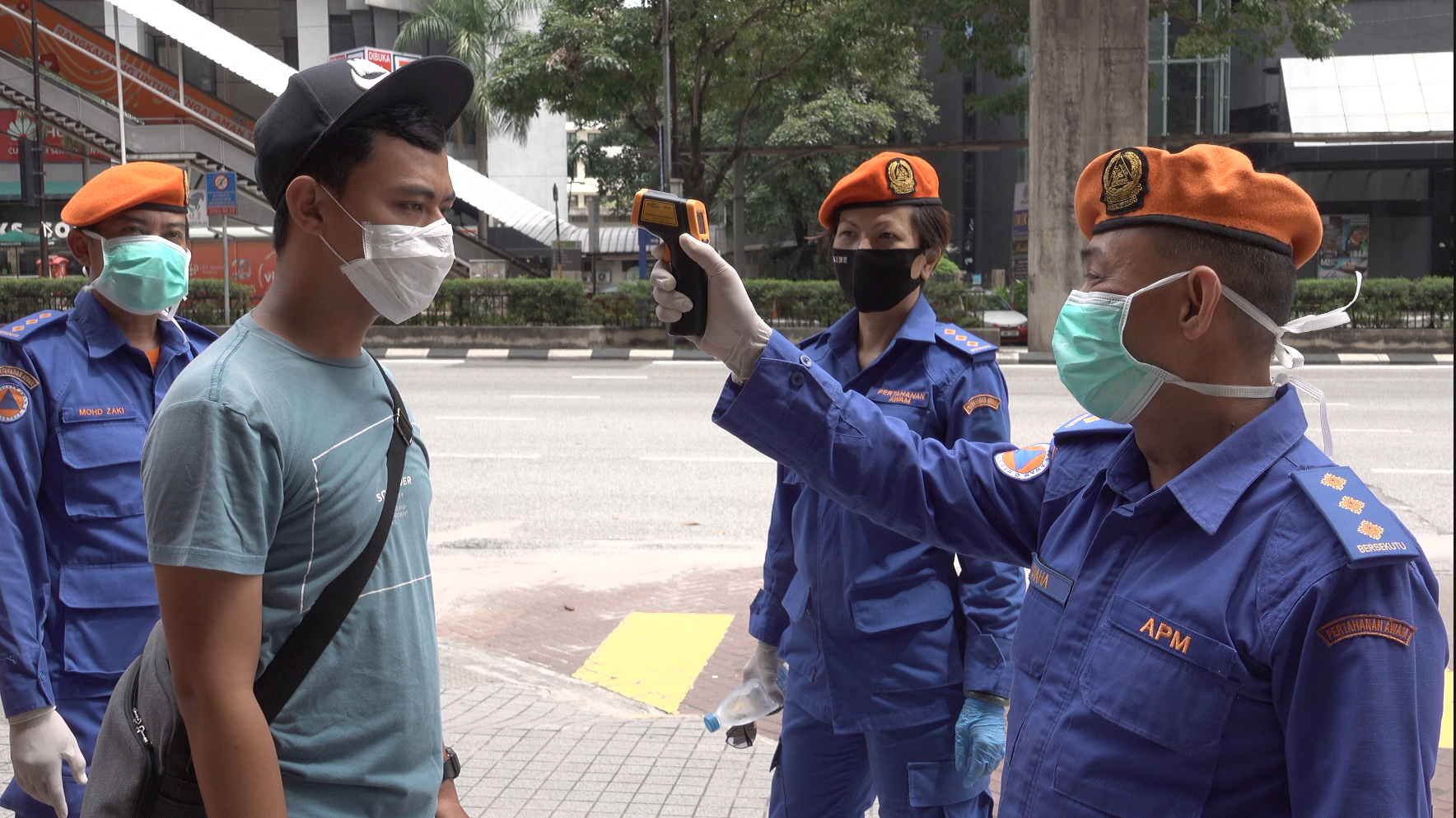
A food delivery rider gets his temperature checked. /CGTN
A food delivery rider gets his temperature checked. /CGTN
From my own standpoint, I don't commute for work. I always research, write and edit my stories for CGTN in my home office/studio. But with Malaysia virtually shut down, the only reports I can think of producing are ones connected to the pandemic and Malaysia's response to it. There's little room in the newscasts for any other stories, in any case.
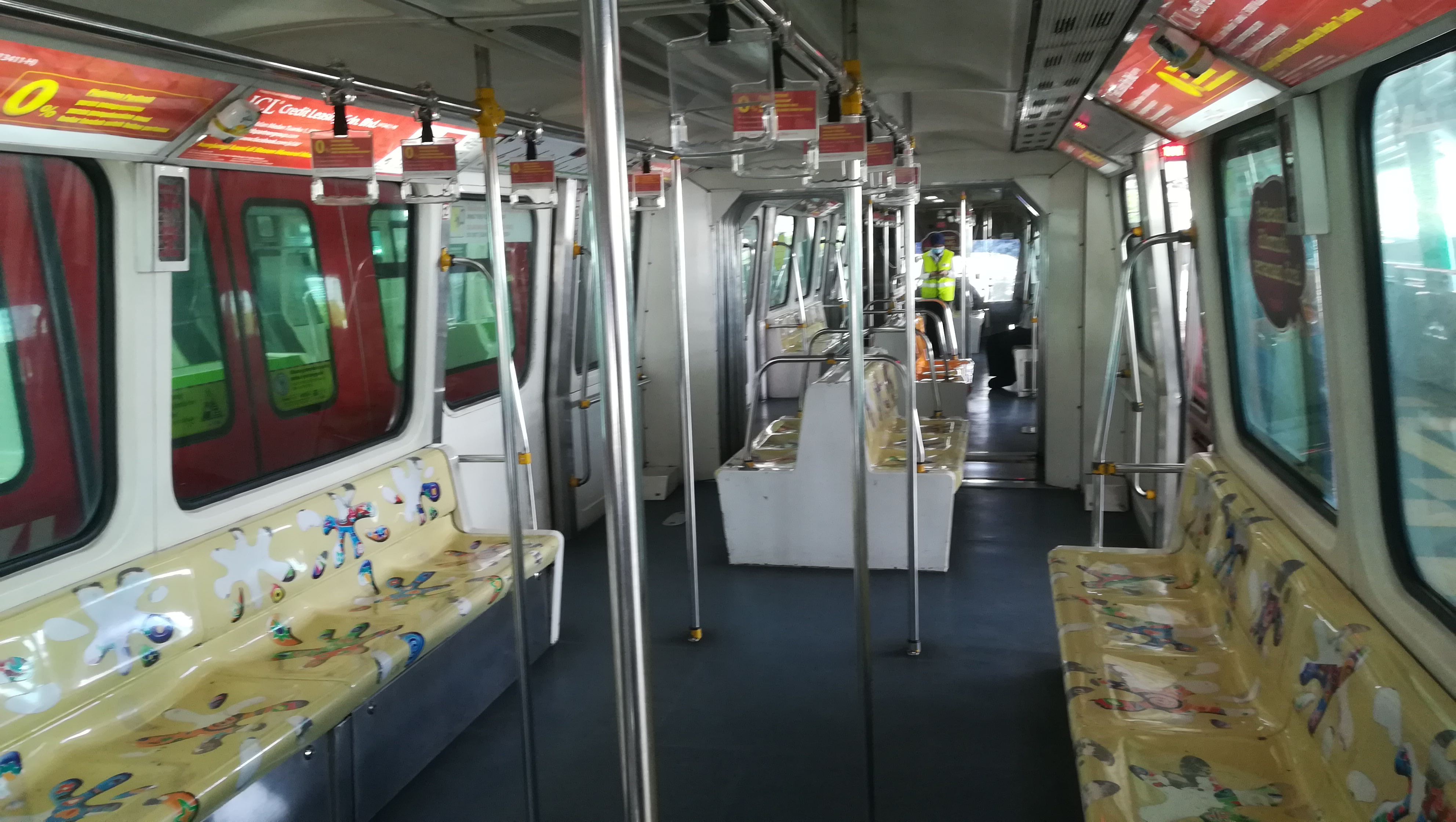
The public transit is running but nearly empty. /CGTN
The public transit is running but nearly empty. /CGTN
My teenaged kids both go to international schools, who having anticipated the lockdown, set up remote learning systems with classes conducted via video link.
We are fortunate to live in a spacious house with a garden. Pity those crammed together in low-cost apartments the size of my living room. Pity those who work in the informal sector as petty traders and hawkers who have no income and no savings to fall back on. Pity those still forced to work in low-paying jobs because their service is considered essential. Pity the foreign migrant workers sitting all day in stifling makeshift shacks on idle building sites across Malaysia.
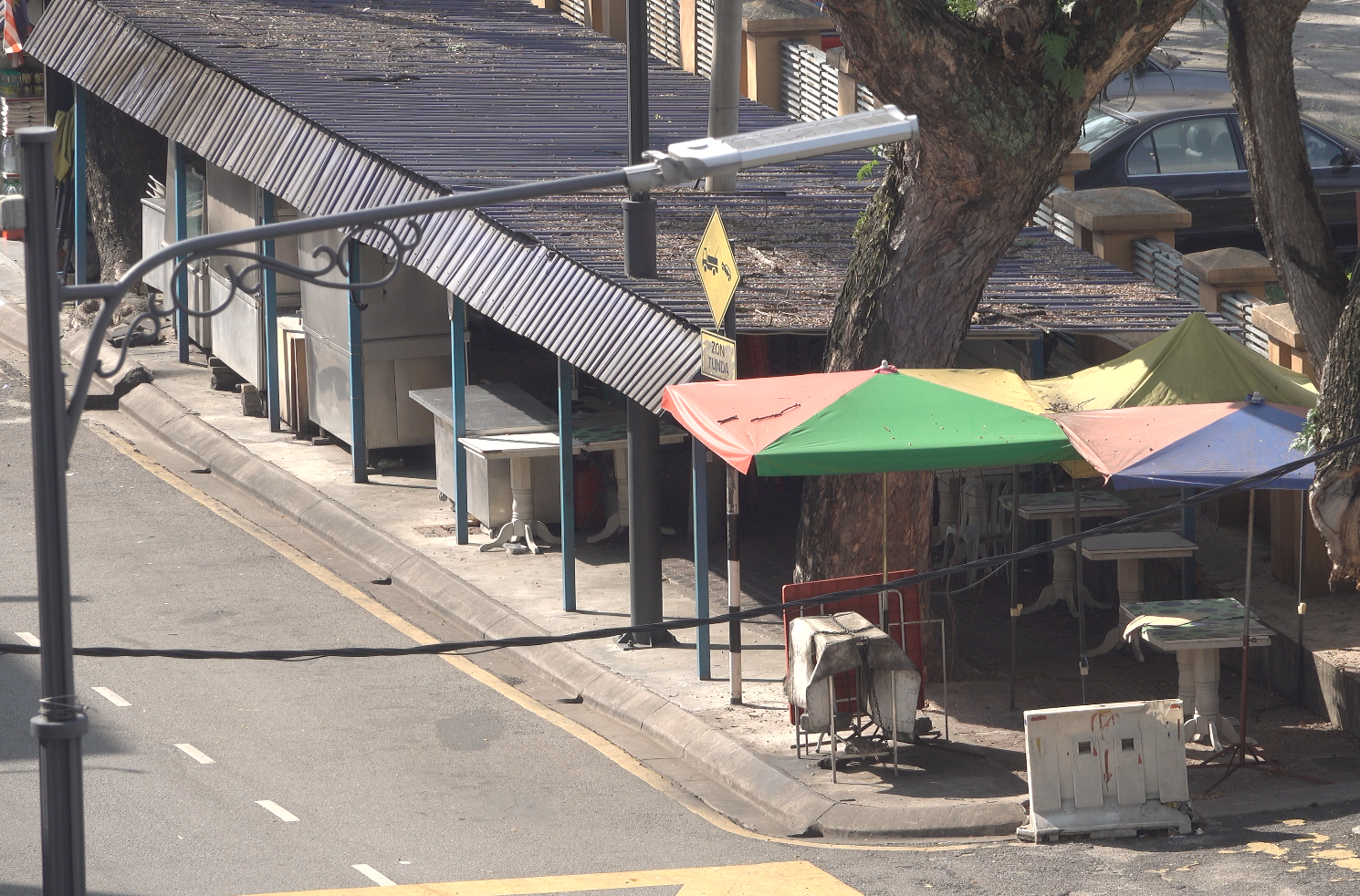
Petty traders from the lower income group will be hit hard. /CGTN
Petty traders from the lower income group will be hit hard. /CGTN
Malaysia's health authorities and professionals have done a commendable job containing the outbreak through vigilant screening, testing, isolating and treating. Now is the time for other Malaysians to commit to doing their part by, as the prime minister put it, just staying home.
(Cover: 16,000 people linked to a missionary movement attended the mosque event. /CGTN)